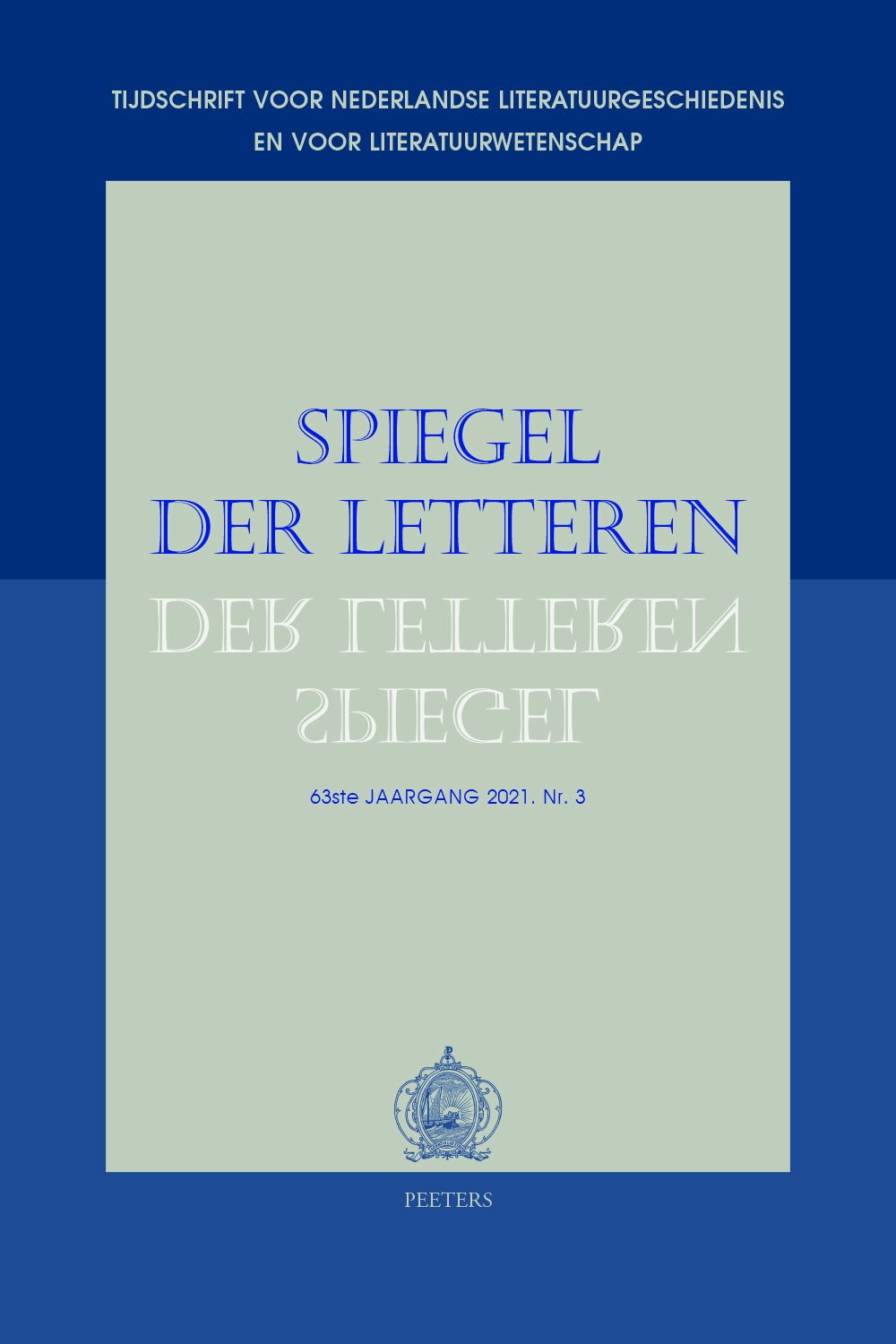 previous article in this issue previous article in this issue | next article in this issue  |

Preview first page |
Document Details : Title: Arme meneer Zetternam Subtitle: Het empathisch motief bij Mynheer Luchtervelde en zijn schrijver Author(s): BEYAERT, Ellen Journal: Spiegel der Letteren Volume: 60 Issue: 3-4 Date: 2018 Pages: 189-218 DOI: 10.2143/SDL.60.3.3285822 Abstract : Mynheer Luchtervelde. Waerheden uit onzen tyd (1848) is considered to be the first Flemish novel of social criticism, i.e. a novel in which the social conditions of the factory worker are criticized (in the context of industrialisation). Eugeen Zetternam is one of the first authors in Flanders who made his readers sensible to this social issue. That sensitivity, which I specify as empathy, is not only noticeable in the novel itself, but also in the perception of the author. From the nineteenth century to this very day, there seems to be a strong ‘empathic’ focus in the reception of Zetternam and his work. This article argues that the ‘empathic’ perception of the author is connected to the rhetoric of empathy in the novel itself. The empathic discourse seems to be grafted onto the characters in the novel, whereas at the same time the image of Zetternam reinforces the rhetoric of empathy in the novel. |
|


